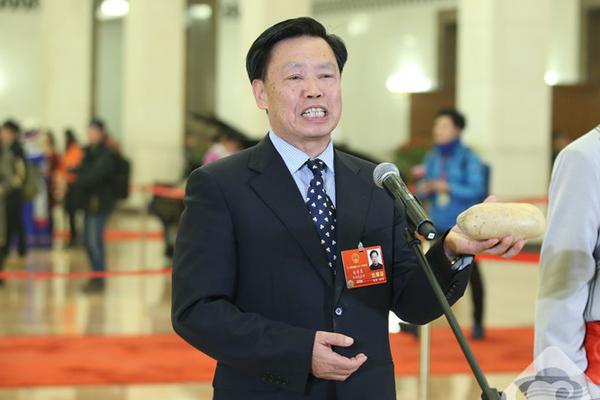
1. The five major functions of the operating system include: process and processor management, operation management, storage management, equipment management and file management.
2. A [Analysis] As the manager of the resources of the computer system, the main function of the operating system is to manage and schedule all the software and hardware resources of the system reasonably and improve the overall performance of the computer system.
3. Operating System (abbreviation: OS) is a group of interrelated system software programs that supervise and control computer operation, use and run hardware, software resources and provide public services to organize user interaction.
4. The main function of the operating system: process management. Resident programs and applications run on the basis of the process.When the computer adopts the von Neumann structure, each CPU can only run one process at a time.
5. The operating system has five functions: processor management: mainly controls and manages the work of the CPU. Storage management: mainly allocate and manage memory. Device management: mainly manage basic input and output devices. File management: responsible for the organization, storage, operation and protection of computer files.
6. The operating system has five functions: processor management: mainly controls and manages the work of the CPU. Storage management: mainly carry out memory allocation and management device management: mainly manage basic input and output device file management: responsible for the organization, storage, operation and protection of computer files, etc.

1. The storage management function of the operating system is to manage memory resources. It mainly realizes memory allocation and recovery, storage protection and memory expansion. The device management of the device management operating system is responsible for allocating and recycling external devices, and controlling external devices to operate according to the requirements of user programs.
2. The functions of the computer operating system include: processor management, memory management, device management, file management, job management and other functional modules. Processor management. The most basic function of processor management is to handle interrupt events. The processor can only detect interrupt events and generate interrupts and cannot process them.
3. The five major functions of the operating system are processor management, memory management, device management, file management and job management. Processor management The most basic function of processor management is to process interrupt events. After configuring the operating system, various events can be processed.
1. The main functions of the computer operating systemIt is process management. Its work is mainly process scheduling. In the case of a single user and a single task, the processor is only exclusive to one user's task. The work of process management is very simple.
2. The five major functions of the operating system are processor management, memory management, device management, file management and job management. Processor management The most basic function of processor management is to process interrupt events. After configuring the operating system, various events can be processed.
3. The role and basic functions of the operating system: the basic functions of the operating system include task management, interface management, human-computer interaction, graphical interface, voice control and virtual reality, etc.; file management; storage management, which is essentially the management of storage "space", mainly refers to the management of the main memory. Reason.
4. The basic functions of the operating system include process management, memory management, file system, network communication, security mechanism, user interface and driver. The operating system is the interface between the user and the computer, and also the interface between computer hardware and other software.
5. The five functions of the operating system are processor management, memory management, device management, file management and job management. Processor management The most basic function of processor management is to handle interrupt events. After configuring the operating system, various events can be processed.
6. The operating system has five functions: processor management: mainly controls and manages the work of the CPU. Storage management: mainly allocate and manage memory. Device management: mainly manage basic input and output devices. File management: responsible for the organization, storage, operation and protection of computer files.
Okx app download-APP, download it now, new users will receive a novice gift pack.
1. The five major functions of the operating system include: process and processor management, operation management, storage management, equipment management and file management.
2. A [Analysis] As the manager of the resources of the computer system, the main function of the operating system is to manage and schedule all the software and hardware resources of the system reasonably and improve the overall performance of the computer system.
3. Operating System (abbreviation: OS) is a group of interrelated system software programs that supervise and control computer operation, use and run hardware, software resources and provide public services to organize user interaction.
4. The main function of the operating system: process management. Resident programs and applications run on the basis of the process.When the computer adopts the von Neumann structure, each CPU can only run one process at a time.
5. The operating system has five functions: processor management: mainly controls and manages the work of the CPU. Storage management: mainly allocate and manage memory. Device management: mainly manage basic input and output devices. File management: responsible for the organization, storage, operation and protection of computer files.
6. The operating system has five functions: processor management: mainly controls and manages the work of the CPU. Storage management: mainly carry out memory allocation and management device management: mainly manage basic input and output device file management: responsible for the organization, storage, operation and protection of computer files, etc.

1. The storage management function of the operating system is to manage memory resources. It mainly realizes memory allocation and recovery, storage protection and memory expansion. The device management of the device management operating system is responsible for allocating and recycling external devices, and controlling external devices to operate according to the requirements of user programs.
2. The functions of the computer operating system include: processor management, memory management, device management, file management, job management and other functional modules. Processor management. The most basic function of processor management is to handle interrupt events. The processor can only detect interrupt events and generate interrupts and cannot process them.
3. The five major functions of the operating system are processor management, memory management, device management, file management and job management. Processor management The most basic function of processor management is to process interrupt events. After configuring the operating system, various events can be processed.
1. The main functions of the computer operating systemIt is process management. Its work is mainly process scheduling. In the case of a single user and a single task, the processor is only exclusive to one user's task. The work of process management is very simple.
2. The five major functions of the operating system are processor management, memory management, device management, file management and job management. Processor management The most basic function of processor management is to process interrupt events. After configuring the operating system, various events can be processed.
3. The role and basic functions of the operating system: the basic functions of the operating system include task management, interface management, human-computer interaction, graphical interface, voice control and virtual reality, etc.; file management; storage management, which is essentially the management of storage "space", mainly refers to the management of the main memory. Reason.
4. The basic functions of the operating system include process management, memory management, file system, network communication, security mechanism, user interface and driver. The operating system is the interface between the user and the computer, and also the interface between computer hardware and other software.
5. The five functions of the operating system are processor management, memory management, device management, file management and job management. Processor management The most basic function of processor management is to handle interrupt events. After configuring the operating system, various events can be processed.
6. The operating system has five functions: processor management: mainly controls and manages the work of the CPU. Storage management: mainly allocate and manage memory. Device management: mainly manage basic input and output devices. File management: responsible for the organization, storage, operation and protection of computer files.
Binance app download Play Store
author: 2025-01-23 04:53 OKX Wallet APK
OKX Wallet APK
448.33MB
Check OKX Wallet apk download latest version
OKX Wallet apk download latest version
427.33MB
Check Okx app download
Okx app download
848.16MB
Check Binance download
Binance download
869.48MB
Check OKX review
OKX review
574.78MB
Check Binance app
Binance app
766.44MB
Check okx.com login
okx.com login
827.82MB
Check Binance app
Binance app
237.53MB
Check OKX Wallet login
OKX Wallet login
316.58MB
Check Binance app
Binance app
475.48MB
Check Binance market
Binance market
335.22MB
Check Binance login
Binance login
763.94MB
Check Binance wikipedia
Binance wikipedia
454.87MB
Check Binance download
Binance download
199.38MB
Check Binance download Android
Binance download Android
979.37MB
Check Binance app download Play Store
Binance app download Play Store
657.36MB
Check Okx app download
Okx app download
614.84MB
Check Binance app
Binance app
886.49MB
Check Binance app
Binance app
419.86MB
Check OKX Wallet APK
OKX Wallet APK
452.68MB
Check Binance download
Binance download
992.65MB
Check okx.com login
okx.com login
462.17MB
Check OKX Wallet app download for Android
OKX Wallet app download for Android
645.49MB
Check OKX Wallet APK
OKX Wallet APK
874.23MB
Check Binance app
Binance app
584.23MB
Check Binance login
Binance login
973.38MB
Check Binance Download for PC Windows 10
Binance Download for PC Windows 10
656.53MB
Check Binance app download Play Store
Binance app download Play Store
242.31MB
Check Binance Download for PC Windows 10
Binance Download for PC Windows 10
632.93MB
Check Binance Download for PC Windows 10
Binance Download for PC Windows 10
845.14MB
Check Binance APK
Binance APK
985.57MB
Check Binance wikipedia
Binance wikipedia
471.76MB
Check OKX download
OKX download
168.72MB
Check Binance download
Binance download
899.35MB
Check Binance download
Binance download
412.78MB
Check Binance Download for PC Windows 10
Binance Download for PC Windows 10
217.89MB
Check
Scan to install
Okx app download to discover more
Netizen comments More
2910 吞声饮恨网
2025-01-23 07:14 recommend
2007 活神活现网
2025-01-23 06:42 recommend
306 东游西逛网
2025-01-23 06:13 recommend
1953 送往劳来网
2025-01-23 04:55 recommend
706 泥古不化网
2025-01-23 04:43 recommend